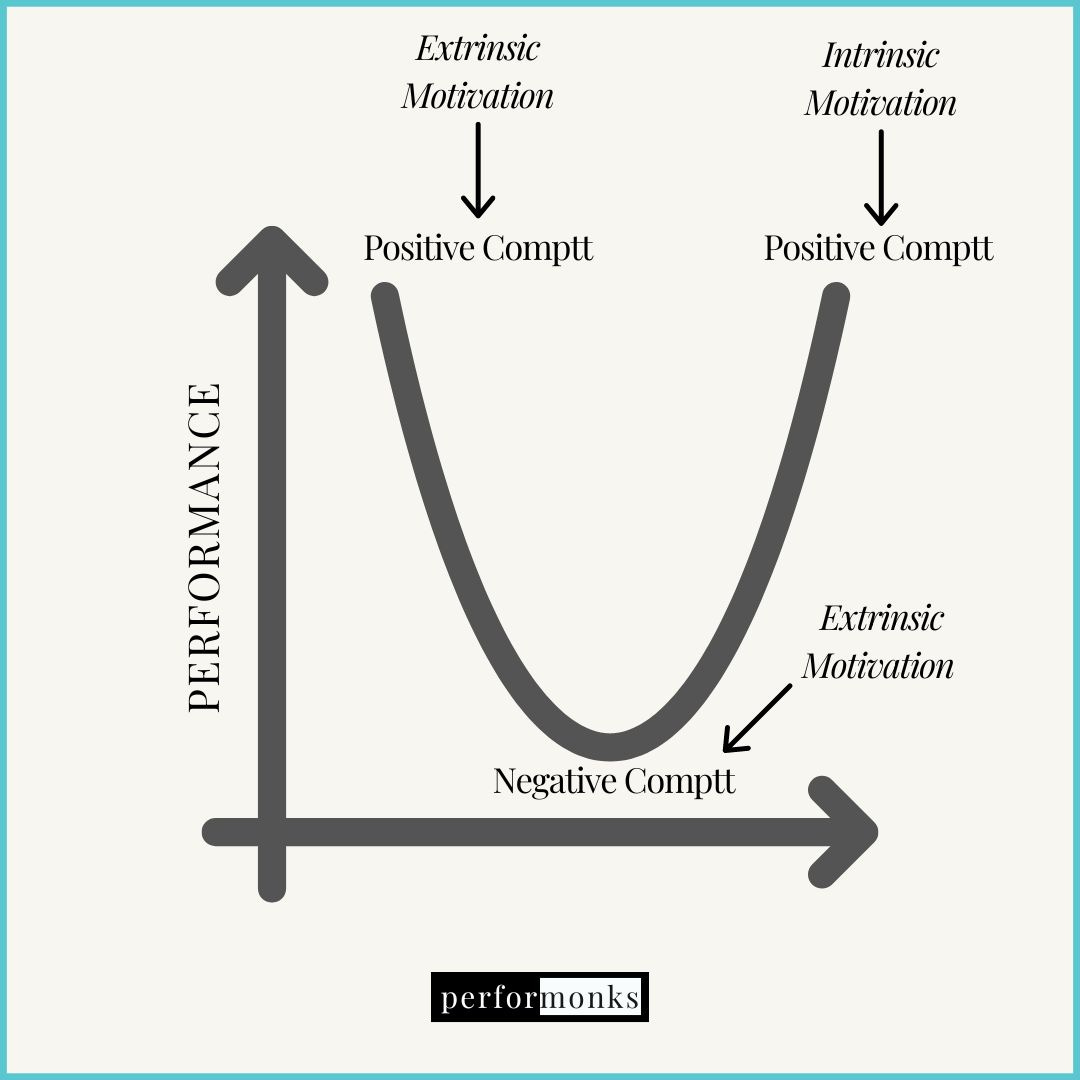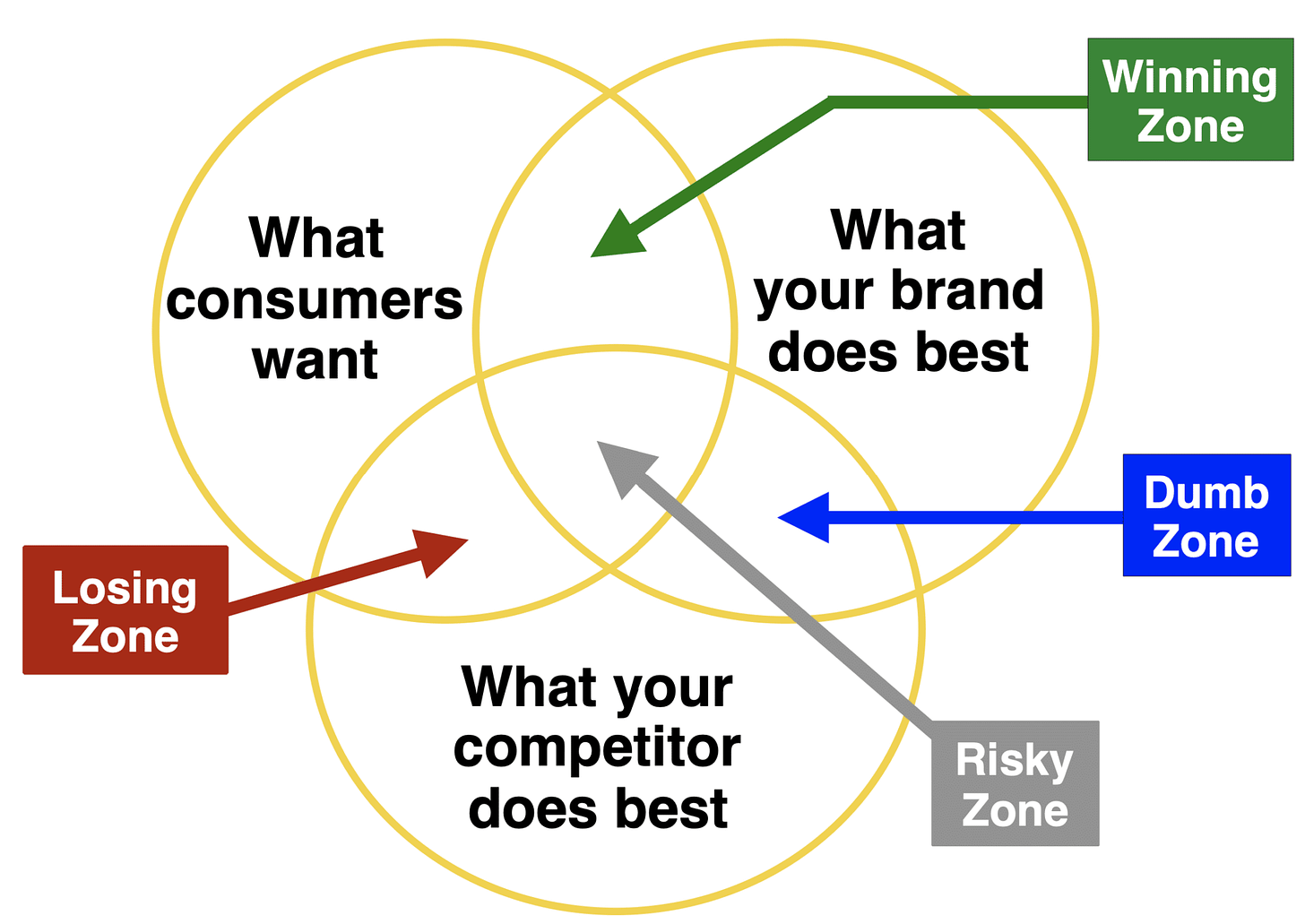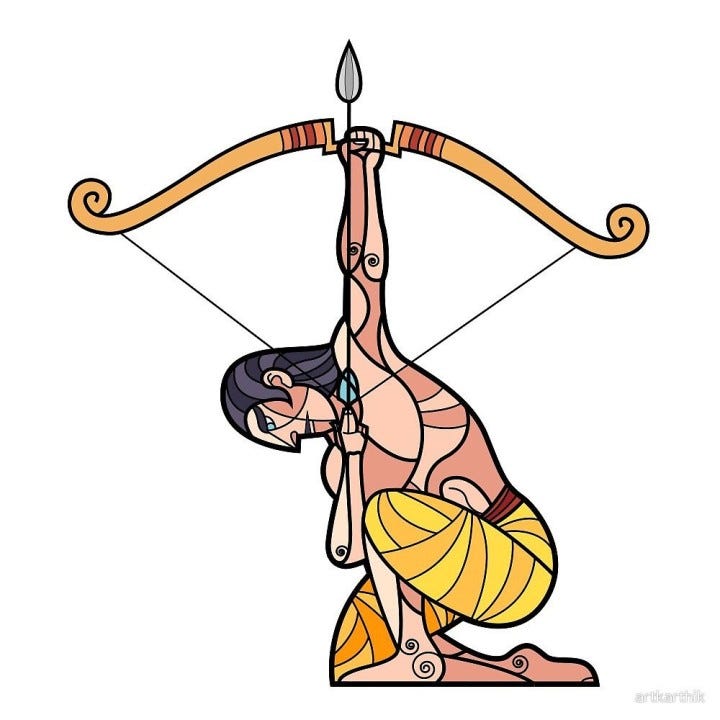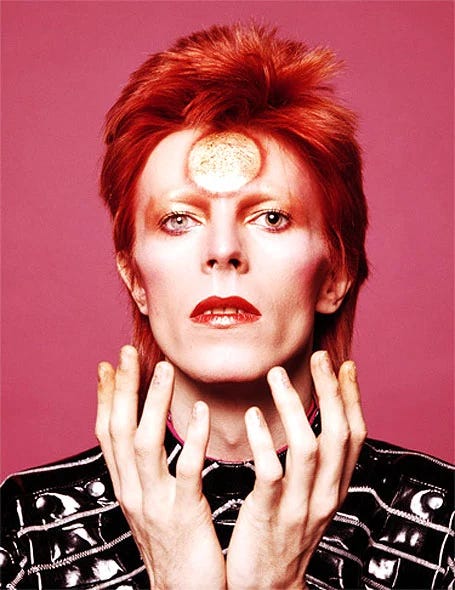#61 21.08.2023
“I’m David Bowie.”
In an interview once, David Bowie was asked,
“Do you have competitors?”
And David Bowie said something that prompted me to write this edition of Performonks. He said,
“I feel that, frankly, over the last twenty years or so, I’m pretty much my own man.
I suppose it’s pretty cheeky of me to put myself in the same light. But, if I look at Bob Dylan, he doesn’t have competition. He’s just Bob Dylan. Whether you like him or you don’t like him, whether he does good stuff or bad stuff, he’s still Bob Dylan. And, you don’t compare him with anybody.
It’s not a competitive kind of thing.
And, I would hope that I’m… I think I probably am… in the same kind of position… I’m David Bowie.”
When we were cavemen and women, competition may have helped us survive. As the saying goes, “If you and I are being chased by a bear, I don’t have to outrun the bear; I just have to outrun you.”
If modern life is about rising to newer levels of personal excellence, growing companies, and building a tomorrow that is better than today, then competition is the yeast to the dough of our existence.
While an obsession with competition may be good when we are in survival mode but if we wish to thrive, then competition is only a byproduct of the game we’re playing.
In this edition, I want to make the assertion that if we play the game only for external rewards, our performance becomes inconsistent. But if we focus on internal mastery, we have a higher probability of not just winning but also of one-of-a-kind success.
Here’s how the psychology of competitiveness works.
Psychology of competitiveness
Our motivation in the face of competition stems from either
- extrinsic rewards – when we are seduced by social comparison like promotions, medals, a bigger house, etc.
- or intrinsic rewards – when we pursue personal excellence and mastery.
In certain situations, the right amount of extrinsic motivation helps us to achieve more. But when we start chasing only extrinsic rewards, we become victims to negative competition – we procrastinate or we fear failure so much that we paralyze ourselves into inaction. Even worse, we become obsessively hyper-competitive and we end up causing more harm than good.

On the other hand, when the locus of our motivation is internal, we enter a state of positive competition.
Here are a few studies that prove this.
When it comes to tests and quizzes, we are externally motivated: A study showed that as the number of competitors in a test increased, avg. scores fell. Tests and quizzes are designed to feed our external reward motivators. That’s why, when we compete against a smaller cohort, the odds of our scoring higher increase. And that motivates us to do better.
When it comes to income, we are externally motivated: A study found that more than half the people said they would rather make $50,000 in a world where the avg. salary is $25,000 then make $100,000 in a world where the avg. is $200,000.
External motivation helps in physical competitions, but hinders mental tasks: A study looked at how competition affects our performance (attention and effort) in physical vs. mental tasks.
The first experiment focused on physical tasks. One group was rewarded for improving their own win rate – internal reward. The second group was rewarded for beating someone else – external reward.
The second experiment was memory-based – participants had to remember shapes. Again, one group was rewarded for the percentage of shapes they memorized. And the second group was rewarded for memorizing more shapes than their competitors.
Here’s what they found:
- In the physical task, people performed better (were more attentive and put in more effort) in a competitive situation.
- However, in the mental task, people performed worse in competitive situations
This makes sense. We may be hard-wired for win-lose scenarios in physical challenges. But in today’s interconnected world, mental tasks require collaboration, not competition.
Hyper-competitiveness does more harm than good: Research has found that hyper-competitive people are mainly driven by external rewards.
Barbara Kellerman, research director for the Center for Public Leadership at Harvard has written a book on bad leaders, “Bad Leadership: What It Is, How It Happens, Why It Matters.” She says, “At the core of every massive corporate unraveling, whether it is Sunbeam, Enron or the Helmsley Hotels, sits a hypercompetitive manager”.
In my opinion, the same thinking applies to brands. If we become obsessed with competition, we start aping their strategies. So we vacate our circle of competence and this becomes a sure-shot way to hit rock bottom. That’s why the best marketers operate only in their ‘winning zone’.

Is it possible to win even against hyper-competitive adversaries by playing a game of internal excellence? Yes, it is, if we learn from these stories.
- It’s what you do in the dark that puts you in the light: Bhim, Arjun, Phelps
- Do what you love: Master Shifu
- Narrow your game, play a game of one: Mick Jagger
- Make your own rules: Arnold Schwarzenegger
- Red light the game you don’t want to play anymore: Matthew McConaughey
1. It’s what you do in the dark that puts you in the light: Bhim, Arjun, Phelps
When we pursue excellence – even when no one’s watching.
Bhim, Arjun: The story goes that Bhim (the strongest and biggest of the five Pandav brothers in The Mahabharat) loved food. He used to often wake up at night and raid the kitchen.
One day, the ruckus he was creating woke up Arjun (the Pandav brother who was an excellent archer). As Arjun watched Bhim make his way effortlessly through the kitchen even in pitch dark, he resolved to start practicing at night to learn to focus only on the target and nothing else.

This later helped him win Draupadi in an archery competition. In the competition, the one who would pierce a rotating fish’s eye by looking only at its reflection in a pool of water would win Draupadi’s hand in marriage.
Phelps: I have mentioned this in an earlier newsletter. Phelps is known to swim in the dark, or without his goggles, to train himself for the toughest situations. This ad by Under Armor captures his game of I vs. Me beautifully.
2. Do what you love: Master Shifu
When our path of excellence overlaps with what we love, more like we are to stick to the path.
Master Shifu: Panda would have to face the meanest and most hyper-competitive foe – Tai Lung. Tai Lung had trained to fight since he was a child. But all Panda had done was eat dumplings and dream of Kung Fu.
Master Shifuknew the only way to train Panda would be to entice him with what he loved the most – food.
The video is self-explanatory. And a lot of fun.
3. Narrow your game, play a game of one: Mick Jagger
You only have competition if you choose to have competition. Refuse this choice. And, be so wildly uniquely yourself, that your would-be competitors are forced to make this choice too.
Mick Jagger: When Mick Jagger was asked about the “competition” between The Rolling Stones and The Beatles. The dialogue was similar to the one with David Bowie.
Here is the transcript.
Reporter: “How do you compare your group with The Beatles?”
Jagger: “I don’t know. How do you compare it with The Beatles? I don’t compare it at all. There’s no point.”
Reporter: “Well, let’s get down to brass tacks –– do you think you’re better than they are?”
Jagger: “At what? It’s not the same group. So, we just do what we want and they just do what they want. And, there’s no point going on comparing yourself. You can prefer us to them or them to us. It’s just diplomatic, you see?”
Reporter: “Do you feel you do what you want to do better than they do what they want to do?”
Jagger: “Ugh. Well, I don’t know. I don’t know what they want to do, you see? It’s very diplomatic.”
Coming back to David Bowie: Before his major breakthrough as Ziggy Stardust in 1972, Bowie was an unknown artist.

As per his biographer Dylan Jones, Bowie, even in the 1960s, was changing his persona constantly. But the problem was that he was always slightly behind the curve – his ‘new’ was recycled goods.
Ziggy Stardust was 100% original. And this started a journey of re-invention that was The Original Bowie. The rest is history.
4. Make your own rules: Arnold Schwarzenegger
Our competition is a function of the game we are playing.
Arnold Schwarzenegger: Schwarzenegger has excelled in three very different and very competitive careers: bodybuilding (4x Mr. Universe, 7x Mr. Olympia), acting ($4B+ in lifetime box office), and politics (Governor of California).
He was able to do this by very strategically planning his every move. What drove him was that he did not want to live the life of a typical muscleman in the movies. As he says,
“…I no longer wanted to be just Conan. The whole idea of making a few Hercules-type movies and then taking the money and going into the gym business like Reg Park went right out the window. I felt I had to aim higher.
And he did.
- he expanded his genre to comedy. He did not let the audience dictate his career – a safe choice would have been to remain an action hero forever. Instead, he felt he was pigeonholing himself as an “action star”. So he convinced the director of Ghostbusters – Reitman, to cast him in a comedy role. The comedy, Twins, became a blockbuster hit. And this started a career in a new unique niche – a funny action hero – a niche that had zero competition.

2. money and creative control: Schwarzenegger first made himself financially secure by investing his body-building winnings into a mini-real estate empire. That way, he could take risks with his acting choices. Not just that, to convince Reitman, he agreed to forego his salary in return for profit sharing. (At launch, Twins made $216MM and Schwarzenegger took home $40MM. This golden goose keeps on giving. In 2023, his share of airing rights across TV, DVD, etc. was over $100MM).
5. Red light the game you don’t want to play anymore: Matthew McConaughey
Saying no is also part of the game.
Matthew McConaughey: Matthew McConaughey could have stayed in his lane of Rom-Coms, become a multi-millionaire, and also earned the adulation of fans.
But he became tired of playing the same formulaic roles and wanted to do deeper, more meaningful acting. Because he had grown internally.
He decided to take a two-year break – what he calls his “unbranding phase”. He turned down all Rom-Com offers. Even offers worth $14.5 MM. Until he started getting more nuanced characters. This set him on the path to his Oscar.
Watch him tell his story.
In his autobiography, Greenlights, he uses the traffic light analogy to say that we train ourselves to follow green lights – periods of success and external affirmation.
But yellow and reds are periods of reappraisal, interruptions – when the world whispers, ‘Have you gone mad?’
That’s when we know we’re charting our own game.
That’s when we win.
What game are you playing?
